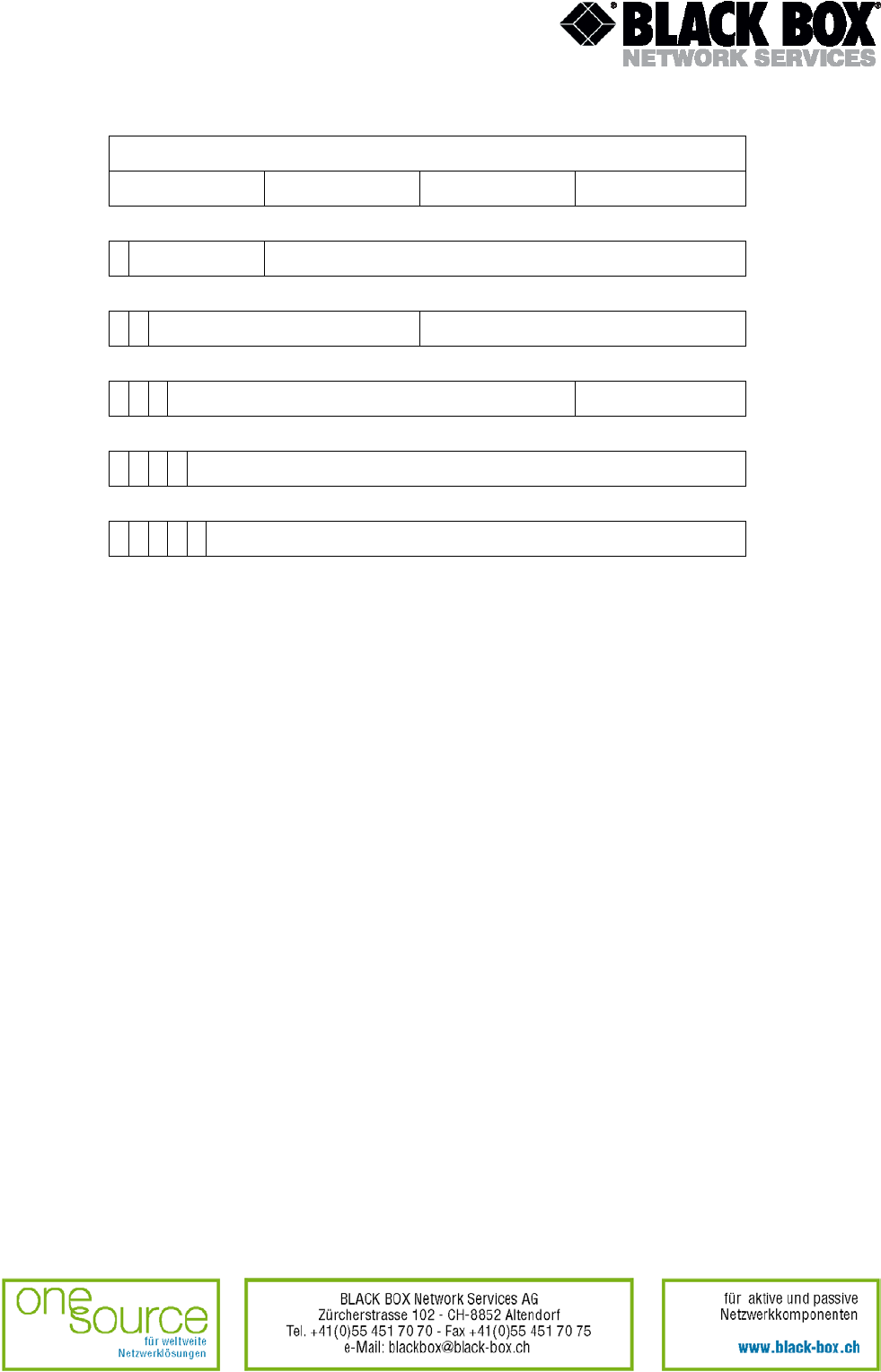
4 bytes
1 2 3 4
Class А
0 Network № Node №
Class B
1 0 Network № Node №
Class C
1 1 0 Network № Node №
Class D
1 1 1 0 Multicast address
Class E
1 1 1 1 0 Reserved
Masks
Network mask is a number, consisting of four bytes. It is a decimal number divided by dots, and it
is used together with the IP address. A mask usually contains decimal numbers – 255. The use of
masks allows providing users with narrow address ranges compared to networks of different
classes. The least dedicated range without masks is Class C network, i.e. 256 addresses. Using
masks, the entry 192.168.1.253 mask 255.255.255.252 defines the address 192.168.1.253 in the
subnet of four-address range: from 192.168.1.252 to 192.168.1.255.
4.2.2.1 Automatic assignment of IP addresses
The administrator can assign IP addresses to network devices either manually or automatically. If
there are many devices in the network, the address assignment is a long and painstaking
process. Dynamic Host Configuration Protocol (DHCP) was developed to facilitate this process.
The primary task of DHCP is dynamic IP address assignment. However, besides dynamic, DHCP
can support simpler means of manual and automatic statistic address assignment.
The administrator takes active part during the manual procedure of address assignment. He
presents information about correspondence of IP addresses to MAC addresses or other
customer’s identifiers to DHCP server.
During the automatic-static address assignment, the DHCP server assigns a free IP address from
the IP address range without reference to the administrator. The administrator gives the
boundaries of the address range during the DHCP-server configuration. In this case, the IP
address remains the same all the time.
During the dynamic address assignment, the DHCP server assigns an address to the customer
for a limited period of time. It means that later other computers can reuse the IP address.
Version: 1.0 Page. 20 of 95


















